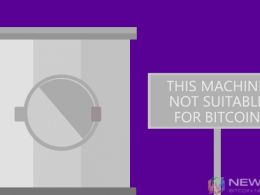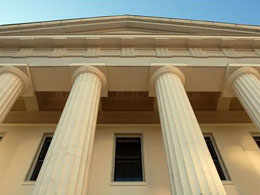
Liberty Reserve Founder Loses Bid to Dismiss Federal Indictment
A US district judge has denied a motion by the one of the founders of early digital currency firm Liberty Reserve to dismiss a federal indictment filed two years ago. According to court documents, Arthur Budovsky asked the judge to waive the indictment on multiple grounds in June, raising questions about whether the firm, based in Costa Rica, was required to register as a money services businesses and whether bitcoin qualifies as "funds". US District Judge Denise Cote of the Southern District of New York rejected Budovsky's motion, which will set the stage for Budovsky to head to trial.....
Related News
Starting June 15, the Mt. Gox bitcoin exchange will stop allowing funds and withdrawals through the Australian Technocash service, which was recently linked to the $6 billion money-laundering case involving Liberty Reserve. In a statement released today, Mt. Gox noted it made its decision "after some deliberation and discussion with Technocash." "We are working on alternatives for our Australian customers, but in the meantime please use other available methods such as international wire transfers, which are available in your customer accounts," the statement from Mt. Gox went on to say.....
Liberty Reserve, a Costa Rica-based private currency exchange with its own digital currency, has shut down around the same time its founder has been arrested in connection with a money laundering investigation. Arthur Budovsky, the exchange's founder, was arrested Friday in Spain, according to the Costa Rican newspaper The Tico Times. The paper reported that the money laundering investigation was a joint operation between authorities in the US and Costa Rica. (This YouTube video, posted Saturday, features a Costa Rican prosecutor discussing the investigation.) It added that US authorities....
The concept of digital currency was well-known way before Bitcoin and consorts staked their claim. One of the most notorious digital currencies in history is Liberty Reserve, which ultimately failed because it was still centralized. Furthermore, the founder of Liberty Reserve pleaded guilty to money laundering recently, a concept that is not possible with Bitcoin by any means. One of the main reasons why Liberty Reserve became so popular and well-known throughout the years is because this digital currency was used for criminal activities all over the world. Laundering money online was....
Vladimir Kats is well known as one of the co-founders of digital currency service Liberty Reserve. He was arrested for a number of charges including money laundering, marriage fraud and receiving child pornography. Some of the charges related to his role in running Liberty Reserve and its money laundering – at least $6 billion. The company Liberty Reserve had began its work on 2006 in Costa Rica. The company touted itself as being the Internet’s largest payment processor and offered its services to people across the globe including those in the US. Since then, it operated one of the....
There's at least one lesson to be learned from the recent closure of Liberty Reserve for alleged money laundering: whether you use "real" government-backed fiat or a distributed digital currency controlled by no one in particular, what you use it for is subject to laws and regulations of many kinds. Fall afoul of those, and the authorities will sooner or later come looking for you. The Costa Rica-based Liberty Reserve used its own digital currency -- also called the Liberty Reserve, or LR -- to provide low-cost payment processing services to customers around the world. Its ease of payments....




